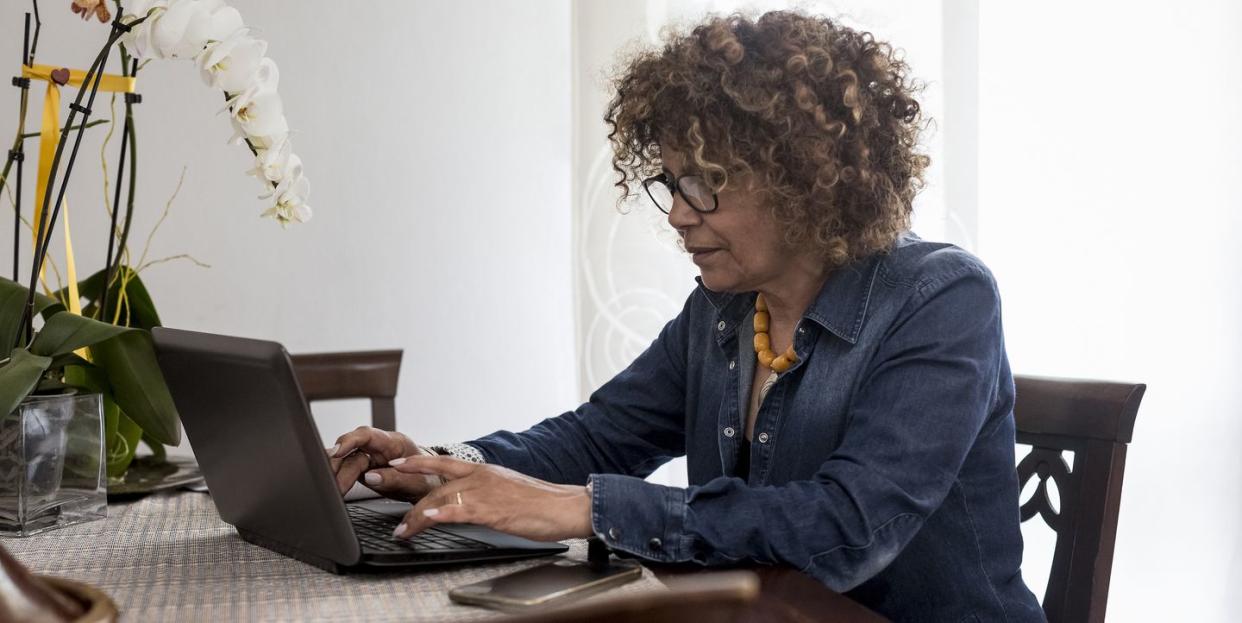Do Blue-Light Blockers Really Work? Experts Discuss the Science Behind Products for Eyes, Skin Care, and Tech

We’re staring at our devices more than ever, and besides eating up our time, they’re giving off tons of light. Blue light has gotten an especially bad rap, but that’s not quite fair: It’s just one piece of the visible spectrum emitted by tech (and the sun), and invisible UV light is worse.
However, blue light is the most intense wavelength we see, and there are legit reasons to shield yourself. A new class of products claims to help. Which are duds, and which are true-blue? Discover if blue light products really work, including items that claim to protect your skin and eyes.
Blue-Light Skincare
What it is: Creams and serums to shield skin from visible light.
What we know: UVA and UVB light are most strongly linked to skin cancer and aging, but visible light can be harmful too; one study found that repeated exposure produced skin discoloration and damage. Small studies have linked blue light to hyperpigmentation, explains Heather Woolery-Lloyd, M.D., a board-certified dermatologist in Miami, but no one light color has been singled out as worst: “Maybe it’s all of them,” she says. Blue-light skincare blocks all visible light, including blue.
Should you try it? Sure, along with SPF if you have a condition like melasma or want extra protection. There are no clear pros yet, Dr. Woolery-Lloyd says, “but there’s no downside.” Any product with iron oxide, like most makeup and many mineral sunscreens, blocks visible light, so you might not need to take this step.
Blue-Light Glasses
What they are: Blue-blocking shades to help you sleep better.
What we know: “When we’re outside during the day, we see a massive amount of blue light,” says Raj Maturi, M.D., a clinical spokesperson for the American Academy of Ophthalmology (AAO). Humans evolved seeing very little blue light at night, but these days, we use devices that emit blue light, like phones and TVs, at all hours. Blue light can suppress the sleep hormone melatonin, per a 2019 study, meaning we should try to limit our nighttime exposure to it.
Should you try them? The AAO does not recommend the glasses, but they pose no threat, Dr. Maturi says, if you want to see whether using them for, say, TV helps you sleep. On phones and computers, a simpler solution is night mode, which removes blue from your screen.
Blue-Light Screen Protectors
What they are: Adhesive film that attaches to screens to prevent eye issues.
What we know: Blue light is commonly thought to cause eyestrain, but a 2018 analysis found no definitive connection between the color and the condition. If you’re suffering from blurriness and sore eyes, Dr. Maturi says, the culprit is likely your device. “Eyes are made to change their focal point,” he explains, but constant staring means less blinking, tears, and movement, leading to eyestrain. And a 2019 study found that blue light from devices didn’t worsen melasma, so you may not need to block it.
Should you try them? Probably not; night mode works just as well. Dr. Maturi recommends the AAO’s 20-20-20 rule to combat eyestrain: Every 20 minutes, look at something at least 20 feet away for 20 seconds.
You Might Also Like

